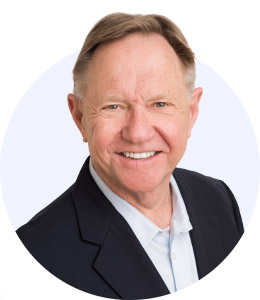In my experience, a person’s professional journey has ups and downs and twists and turns. It is more of a roller coaster ride than a lazy river. The hills and valleys help us learn. I was sharing with a good friend and mentor that I am now better at pausing. The pause helps me resist the urge to act at times—or at least take the action that’s more in line with the situation.
At work and in life, some situations are more important or pressing than others. Often these are ranked A, B, or C. There was a time in my career when I felt everything was an A priority and required an A-type response—meaning a quick action taken with a high degree of emotion. Now I know this is not true.
For me, many developments came over time. In listening to others, the timing may be different, yet the phases are similar. I have read articles that support this. As in other areas of life, we all experience phases in our professional life.
Phase one is our intellectual or educational development. We take courses, receive degrees, and finish apprenticeships. In this phase, we learn more about the vocation we are looking to pursue and may change course if we find something that’s a better fit. I read a story about the University of Wisconsin-Milwaukee athletic director regarding an honor she was to receive. At one time, she felt her calling was law. She was a student in the law program at Duke University when a professor asked a question that made her realize law was not for her. She thought of the people in her life who were excited that she was in this program. How would it look if she quit? But the professor kept the conversation going. The law student shared that, in addition to being valedictorian, she had been a very accomplished athlete in high school. She was also an athlete in college. The professor asked if she ever considered a career in sports administration and shared that just up the way at the University of North Carolina there is a great sports management program. She left Duke, received a sports management degree, and is now very happy.
Phase two in our development is gaining experience. However smart we are, we all start out inexperienced. Often, the challenge is feeling we can’t do the job easily or well. We find ourselves comparing our insides to others’ outsides. While in Chicago, I connected with an old friend. He is phenomenal. He dropped out of high school, but at 19, something clicked when a group of men connected with him to offer help. He got his GED and college degree and graduated from a local law school. He started at a big law firm and was surrounded by other new attorneys who graduated from very prestigious law schools. At first, he was intimidated. What changed? As he gained experience, he realized he could more than hold his own. He has had a great career. The experience phase has successes and failures, some good times and some ego-deflating moments. It is a learning journey.
With the foundation of education and experience, phase three centers on emotional maturity. This is the phase of heightened self-awareness. We begin acting in ways that fit the situation rather than being driven by emotions. I have a long way to go. (Progress versus perfection!) Recently at work something happened that I felt I needed to comment on and correct. After pausing, I decided to let it go. I saw it was not that important and an easy fix down the road. I was 38 years old when smarts, experience, and maturity became more aligned. For many, it happens sooner.
A few tips:
- Be kind to yourself if you decide to change career paths. It happens. My degrees are in education, and I have spent most of my time in healthcare. Almost all careers have similarities. We can transfer learnings from one to the other.
- Be patient with yourself as you gain experience. We acquire skills in phases. This means there is pain, or at minimum discomfort, at different times as we learn. This is why having mentors and friends is vital. They can help us on the journey.
- Build self-awareness. In addition to the friends and mentors listed in tip two, there are many great tools to help one gain a better understanding of oneself. Some of these you can find online. Helpful tools include Management By Strengths, DISC, Myers-Briggs, and others. These help us build our strengths and gain a better grasp of our blind spots.
The key to all development is to be the best student you can be. This means removing characteristics that get in the way of learning. For example, some people can be so sensitive that they deflect feedback. My book Sundays with Quint may be helpful along the journey. When the student is ready, the teacher will appear.







